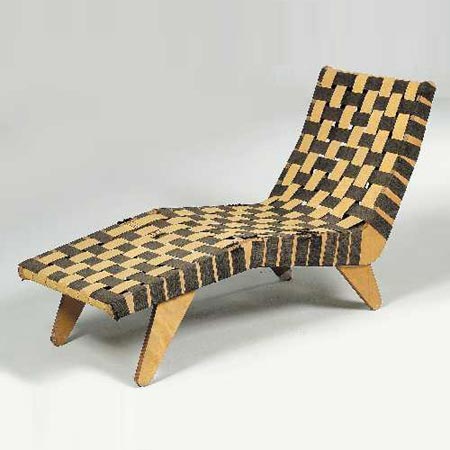Schwarz
View current page
...more recent posts
She pointed out the parlor and a living room lined with Cheever’s books (an eclectic collection that includes his friends Bellow, Updike and Lauren Bacall), but curiously there is no study. He wrote on an Underwood typewriter or portable Olivetti in a guest room, his daughter Susan’s room after she moved out, and in a small room above an Ossining barbershop that he rented for a time.
tony fitzpatrick this train a hobo journal
thx vz
howie pyro radio
The project, called the World Digital Library, aims to “promote international and intercultural understanding,” said James H. Billington, the U.S. librarian of Congress, speaking as the Web site (www.wdl.org) was introduced at Unesco headquarters in Paris.
wfdu-fm 89.1
wbgo-fm 89.3
wkcr-fm 89.9
rago modern auction office highlights:
wharton eshrick corner desk
nakashima hanging wall desk
the big bangs theory
rip sabel starr
clark little surf photography
thx vz
whole earth day
foxfire
mother jones
the geator with the heater
you are what you eat
won on ebay: costal ariel photography
No, the problem with hype is that it transforms the use value of a would-be work of art into its exchange value. For in the middle (there's no end) of the hype cycle, the important thing is no longer what a song, movie, or book does to you. The big question is its relationship to its reputation. So instead of abandoning yourself to the artifact, you try to exploit inefficiencies in the reputation market. You can get in on the IPO of a new artist, and trumpet the virtues of the Arctic Monkeys before anyone else has heard of them: this is hype. Or you issue a "sell" recommendation on the overhyped Arctic Monkeys: this is backlash. But there are often steals to be found among recently unloaded assets: "Why's everybody hatin' on the Arctic Monkeys?" says the backlash-to-the-backlash. The sophisticated trader is buying, selling, and holding different reputations all at once; the trick in each case is to stay ahead of the market. And the rewards from this trade in reputations redound to your own reputation: even though the market (i.e., other people) dictates your every move, you seem to be a real individual thinking for yourself.
No one will admit to being the 100% tool whose taste is 100% social positioning. Probably no one is that person. But anyone sensitive to art is also sensitive enough to feel his true aesthetic judgments under continuous assault from publicists, bloggers, journalists, advertisers, reviewers, and assorted subcultural specimens. Hype-and-backlash overwhelm the artifacts that supposedly occasion them. At this point a basic inversion takes place. Never mind the moon; look at the finger pointing at the moon. Is it pointing too high, or too low? It makes you want to turn away from that overhyped satellite altogether. But there are perversities involved with ignoring hype, too. There's the person who demonstrates his individuality by patently false proclamations: "The Sopranos has nothing on Friends." Or the person who by promoting a revival of some "underrecognized" artist wastes his time and others': "J. F. Powers is the greatest American novelist of the 20th century." Or you shut yourself off from the world and read only Dante. Some people even proclaim discrimination itself hopelessly snobbish, and just watch whatever's on.
Hype-and-backlash might seem simply to speed up and democratize the process of criticism; everybody's a cultural critic now. But this is mistaken. Real criticism of art sometimes attempts the correction of reputations (as when T. S. Eliot encouraged everyone to drop Shelley and pick up Donne), but that's not its main task. Real criticism can take the form of a monograph or a long review, or just a few words mumbled to a friend. In any case, it judges art with reference to the work's internal logic and generic and historical situation. And criticism, which relies on impressions and arguments, is always susceptible to opposite impressions and counterarguments.
construction images won on ebay:
hemp canvas
In 1941 he and Knoll took a three month trip across the country to get a feeling for the different pockets of art and design that were thriving at the time. The trip convinced them that the new generations were going to furnish their homes with quality, modern designs, and when they returned Risom provided Knoll with fifteen pieces for his first Knoll catalogue. This 1942 series [Vostra] featured armchairs, stools and lounges. The chairs, made under wartime materials mandates from cedar wood and surplus webbing, have since become classics and gave Knoll a strong commercial start. The work solidified Risom's style as a combination of simple, well-crafted Scandinavian modernity and streamlined American curves and angles. After the war the cedar was replaced with laminated beech, and the webbed seat and back, inspired by the work of Bruno Matthson, were also replaced with a higher quality material. Knoll’s father’s company sold the chairs as the "Vostra" series in Germany. Risom designed interiors for Knoll, and their New York showroom, but on his return from World War II he started his own company, Jens Risom, Inc.

He stuck a dirty, calloused hand out---"Yo, young blood, lemme hold a dollar". "Yo, professor, lemme hold a dollar". His eyes were milky red, his lips were cracked. "I used to play with Bird". Me- "You played with Bird?" "Yeah, man" he replied. "I played with Bird. I played with Trane too..Bird and Trane....Thunderbird and Night Train! Ahhahahaha". I gave him a dollar
on hating npr
rip citizen kafka
leo castelli , 1976
via vz
"Sooner or later, it’s going to be Brutalism’s turn.”

